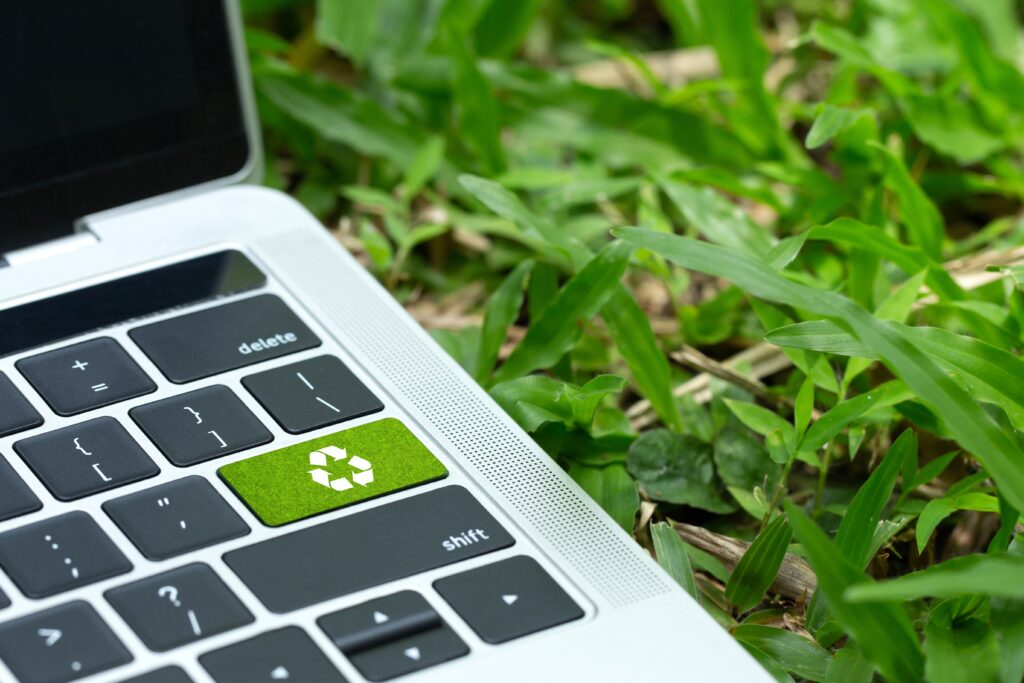For some products, recycling is more involved than finding your closest blue bin. This is especially true with electronics recycling, where a little research is required to make sure that you are recycling products responsibly.
Increased government regulation and official certification of recyclers both help make this possible.
Of all the products brought to market each year, none render their previous iterations obsolete faster than electronics equipment. With technology often evolving faster than perceived market demand, electronics have officially become the largest growing recyclable material in the U.S., with over 7 million tons of electronics equipment available for recycling each year.
But with great technology comes great responsibility, as the recycling process for a desktop computer is more complicated than that of an aluminum can. Recyclers must separate the glass, metals and plastics and find a recycling market for all these individual recovered materials.
Electronics recyclers also must take special care to ensure that any hazardous substances or residues removed during the recycling process (such as batteries, leaded-glass, and mercury) are recovered safely and recycled.
Electronics Recycling Faces Regulation
As recycling is a business endeavor, these companies must do all this while trying to maximize the profit on what is collected. Herein lies the challenge – the responsible de-manufacturing of electronics costs money.
According to a report from the International Data Corporation, in 2011 the ever-growing electronics recycling industry responsibly processed between three and four million tons of used electronics equipment. However, there is an estimated 7 million tons of electronics equipment (predominately from households) available for recycling, meaning about 3 million tons are still being sent to landfills. To ensure responsible practices are used for disposal as well as privacy, safety and environmental practice, some states have passed laws to ensure the responsible recycling of used electronics.
As a result, it should come as no surprise that some electronics recycling operations charge consumers to cover the costs of responsible recycling. You may be able to sell your cell phone and pocket some cash, but that television is difficult to recycle and still turn a profit. Many local governments have taken initiative to encourage the electronics recycling market through legislation, while limiting the impact on tax-payers.
Half of all U.S. states now fall under some type of e-cycling or landfill ban. From manufacturer-financed end of life management to mandatory consumer take-back programs, 25 states now have laws on electronics recycling in one form or another: the common driver within each law being the increased recovery and safe recycling of used electronics.
The Importance of Electronics Certification
A trend on the rise across the industry is the requirement for electronic recyclers to be certified by an accredited third party, which helps them conform the recycling process to a set standard of privacy and environmental compliance.
One such certification on the rise is the R2/ RIOS standard, a dual standard combing the R2 certification with the Recycling Industry Operating Standard (RIOS). This integrated program, operated by the ISRI Services Corporartion, helps recycling facilities improve operations while meeting the emerging needs of the marketplace.
The R2/ RIOS standards require that certified recyclers must hold both R2 and RIOS certifications, as well as that all downstream materials be sent to properly licensed and permitted facilities for environmentally safe handling.
The Right Way to Recycle Electronics
As a consumer, there are some important things to know or ask when preparing to recycle your used electronics.
First, are electronics covered in your city collection program? If your city does not offer e-cycling, many retailers and independent recyclers can be found with a simple search on the Earth911.com directory.
Another question to look into is how to prepare your electronics for e-cycling. Many electronic recyclers will guarantee data destruction as part of their services, but others will not, meaning you would want to wipe your hard drive data before turning it over to the facility.
Certified electronic recyclers will likely offer this service more readily than non- certified recyclers. R2RIOS Certified Electronics Recyclers, as an example, are required to sanitize, purge or destroy data on all hard drives and data storage devices. These certifications are giving consumers a voice in choosing where to route their end-of-life electronics.
Source: Leah Blunt, Earth911.com, Feb. 19, 2013



